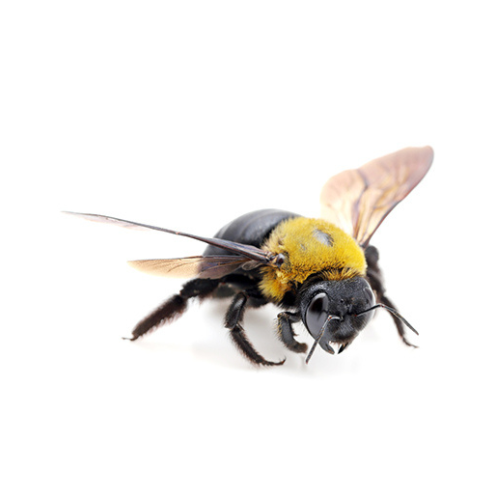
4 Point Inspection
Starting at just $125
A 4 point inspection looks at the 4 major systems (Roof, Electrical, Plumbing, HVAC) in an older home. An insurance company wants to know that an older home has been well maintained, and the major systems are in good working condition.
WDI Inspection
Starting at just $99
WDI or Wood Destroying Insect Inspection is an inspection where we look for signs and symptoms in your home for the following insects: Termites, Carpenter Bees, Carpenter Ants, Powder Post Beetles and Old Wood Borers.
WDI Inspection
Starting at just $99
WDI or Wood Destroying Insect Inspection is an inspection where we look for signs and symptoms in your home for the following insects: Termites, Carpenter Bees, Carpenter Ants, Powder Post Beetles and Old Wood Borers.
Are termites in your home?
Termites are small insects that live in colonies that can grow into the thousands and even millions. A mature colony can cause structural damage to your home before you start to notice the signs of an infestation.

Swarming termites
Swarming termites have light brown to black bodies with a broad waist and straight antennae.

Termites - cellulose
Termites feed on the cellulose found in wood, plants, cotton fibers, and paper products.

Termites swarm
Termites swarm in the spring or summer in search of somewhere to start a new colony.

Termites - wood
Signs of termites include blistering wood flooring, droppings resembling saw dust, mud tubes, swarms, and discarded termite wings.


Termite Damage Can Cost You Thousands
Termite damage can be more costly to repair than any other pest-related damage. A serious termite infestation can put you out $3,000 or more in repair costs.
Mature termite colonies can cause serious damage to your home that can cost several thousand dollars to repair if you wait too long. It is estimated that termites cause over $5 billion in damage every year here in the United States.
Thankfully, most termite infestations are found before serious damage has been caused. Small-scale termite infestations will be largely cosmetic and cost only a few hundred dollars. Termite infestations that last for around 5 years can cause structural damage in our homes. When this is the case, repair costs will be much higher.
How Do Termites Get
Into My House?
They typically enter homes at ground level or below, but they can build mud tubes to enter spots several feet above ground level. One of the most common ways termites get in your home is through wood-to-ground contact, including doorframes, deck posts, and porch steps or supports.
What Termites Need?
Termites need food (cellulose such as wood), moisture and warmth to survive.
Wood building materials in and around homes - from the basement to the crawl space to the attic - can provide the ideal food source for these wood-destroying insects.
What Is A Mud Tube?

What Does the Inspector
Look For?
Common wood-destroying insects:
- Termites – The most damaging subterranean termites are Coptotermes species, which include Formosan and Asian termites, and Reticulitermes species, which include the Eastern subterranean termite. All of these termites can be found throughout Florida, except for the Asian termite, which is located primarily in South Florida.
- Carpenter Ants – The Florida carpenter ant complex is comprised of several species, two of which are common around structures: Camponotus floridanus (Buckley) and Camponotus tortuganus (Emery). These bicolored arboreal ants are among the largest ants found in Florida, making them apparent as they forage or fly indoors and out.
- Carpenter Bees – In Florida, the bees are active most of the year and may nest in February and March and again in summer months. In the wild, the bees prefer nesting in conifers such as cypress, pine or juniper. They may nest in the same area for generations. Small carpenter bees make their homes in stems of various dead plants.
- Woodboring Beetles – Powderpost beetles are right behind termites when it comes to their ability to destroy wood. They are small beetles, measuring only 1/8-3/4 inch long. They get their name from what they leave behind when they burrow tunnels through wood. They turn the wood into a flour-like powder.
100% Honest Inspections Because We
Don't Offer Treatment We Are Just An Inspection Company
Frequently Asked Questions
Do I need a WDI inspection before buying a property?
Can termites get through concrete?
How can I prevent termites?
What Are Wood Destroying Insects?
What Is a Wood Destroying Insect (WDI) Report?
Follow Us On Social Media
Otowninspections.com
Central Business District Orlando FL 32801
Mon - Sun: 7am - 9pm
contact@otowninspections.com
Your inspector is always ready to answer your questions.

Our support team is always ready to answer your questions.
Your Inspector is always ready
to answer your questions.
Proudly Servicing Orlando &
The Surrounding Area
Proudly Servicing Orlando &
The Surrounding Area
You are in advanced mode.
You can turn it off in left sidebar. To use advanced options, you will need to enter your own Google Maps API Key.
Get Google API Key


